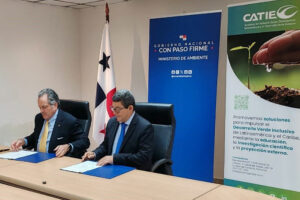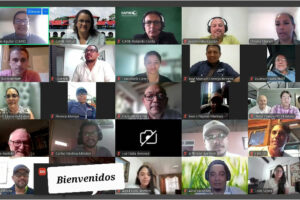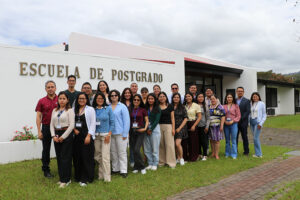CATIE strengthens technical capacities for a low-carbon livestock sector in Honduras
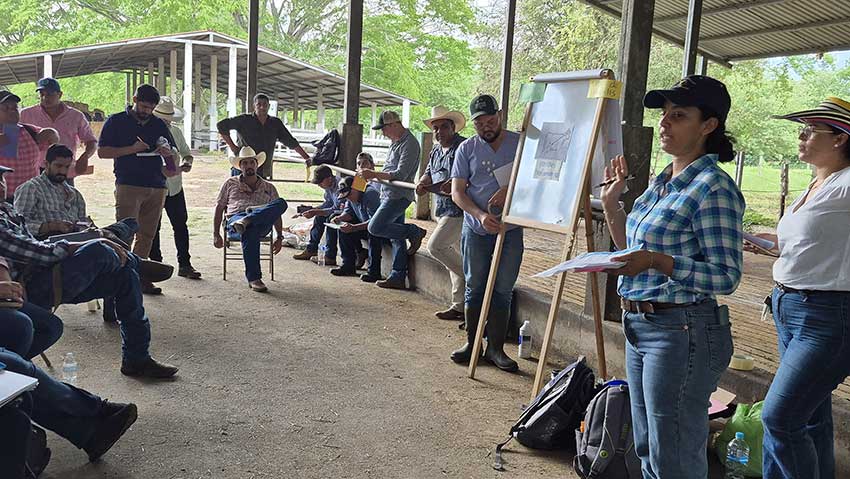
- Specialists and facilitators participated in the Third Training of Trainers Workshop of the MAF-Ganadería-HN project
With the aim of promoting a more sustainable and resilient livestock sector in Honduras, CATIE (Tropical Agricultural Research and Higher Education Center) held the Third Training of Trainers (ToT) Workshop of the project Transforming the Honduran Livestock Sector into a Low-Carbon Economy (MAF-Ganadería-HN).. The activity took place from June 2 to 6, 2025, in the city of Catacamas, Olancho.
The workshop brought together eight specialists and 27 facilitators from all project intervention areas. These professionals lead training processes with farming families through the Livestock Field Schools (ECAs), an educational model that promotes hands-on learning on farms.
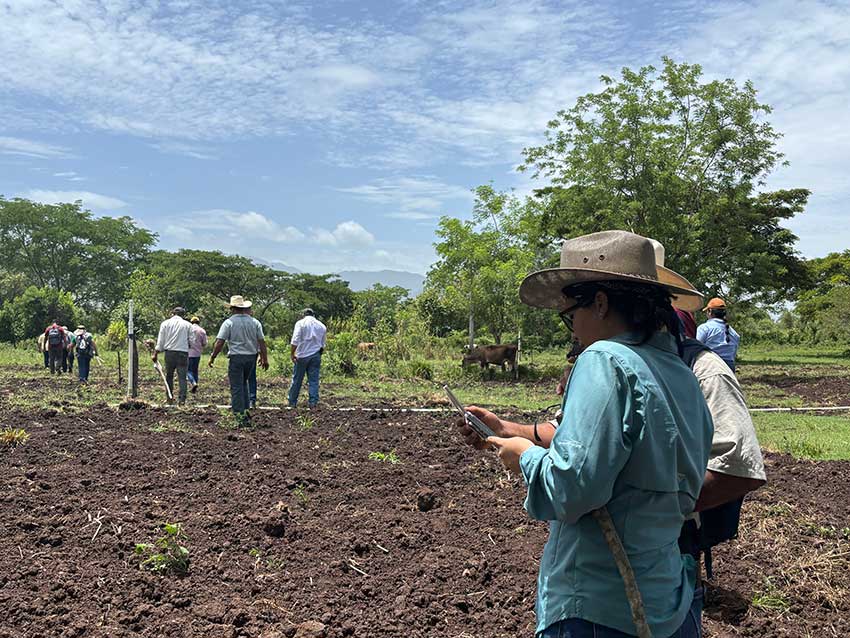
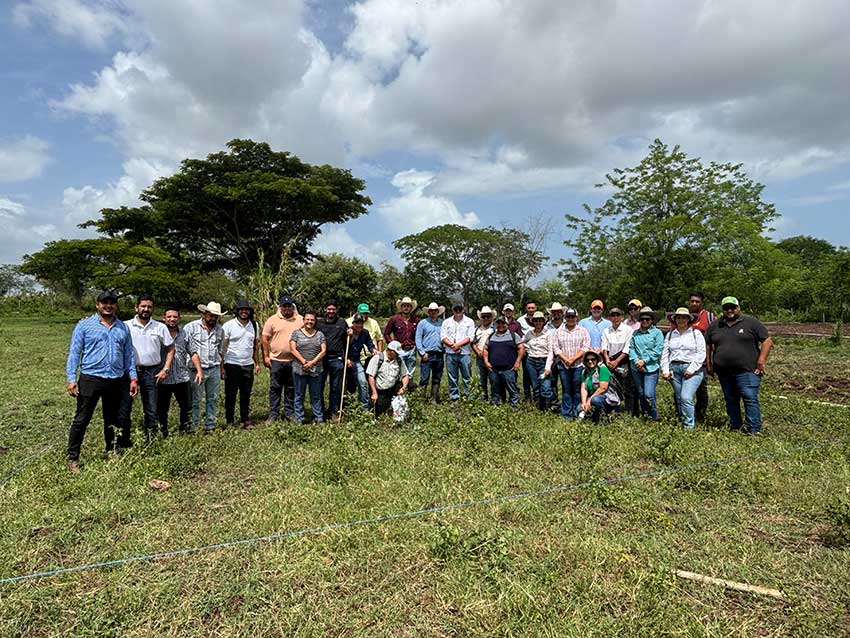
Over the course of five days, participants strengthened their technical and methodological capacities to implement the first seven sessions of the ECA curriculum, which address key topics for improving livestock productivity and environmental sustainability:
- Establishment and management of improved pastures
- Control of the screwworm
- Prevention and management of clinical and subclinical mastitis
- Implementation of biodiverse silvopastoral systems
- Rainwater quantification and collection
- Benefits of intensive rational grazing
The sessions were conducted using a participatory methodology on demonstration farms in the area, allowing participants to validate content in real-life contexts and adapt learning scripts before replicating them with livestock families.
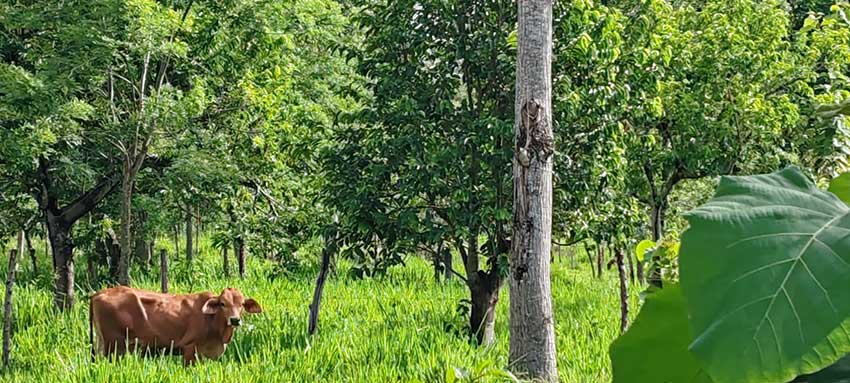
“The effective implementation of this curriculum, along with farm plans, pilot farms, demonstration plots, and participatory experimentation, represents a strategic opportunity to address low livestock productivity. This situation is largely due to inadequate pasture management,” explained Edwin García, coordinator of the technical assistance component of the project.
Aligned with the country’s climate commitments
This comprehensive strategy not only improves the productive efficiency and sustainability of livestock systems but also contributes to reducing emissions from the sector, in alignment with Honduras’ Nationally Determined Contributions (NDCs) and the Sustainable Development Goals (SDGs).
El evento contó con el valioso apoyo de aliados estratégicos como la EThe event received valuable support from strategic partners such as the Panamerican Agricultural School (Zamorano), the National University of Agriculture (UNAG), Heifer International, and other project collaborators, reinforcing the collective commitment to a more environmentally and economically responsible livestock sector.
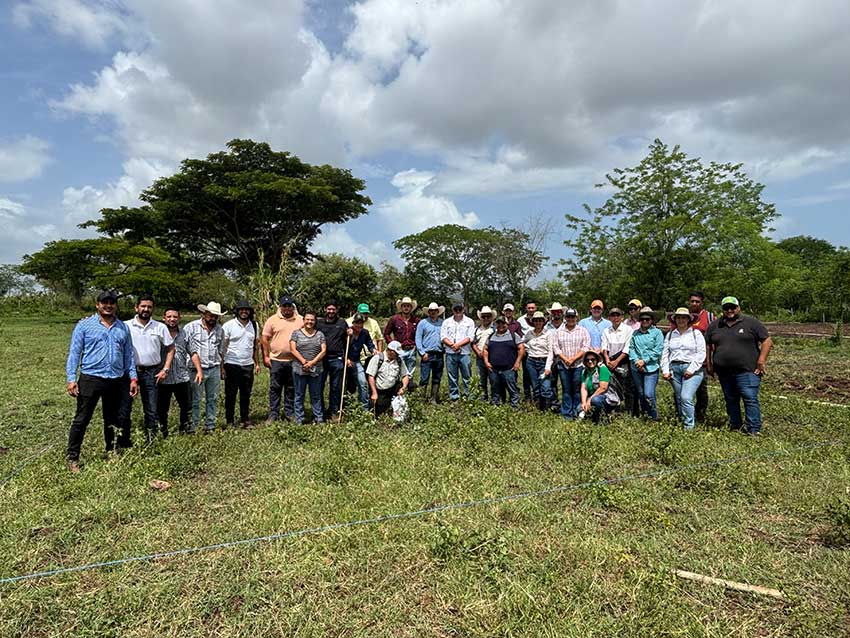
About the MAF-Ganadería Honduras project
The MAF-Ganadería Honduras project promotes a low-carbon, resilient, and profitable livestock model aimed at reducing greenhouse gas (GHG) emissions and strengthening the sustainability of the sector.
It is led by the Secretariat of Agriculture and Livestock (SAG) and the Secretariat of Natural Resources and Environment (SERNA), with technical implementation by CATIE and financial support from the Mitigation Action Facility.
More information:
Juan Carlos Flores
National Coordinator Honduras
Transforming the Honduran Livestock Sector into a Low-Carbon Economy (MAF-Ganadería-HN).
CATIE
juan.flores@catie.ac.cr
Written by:
Gina Samanti Puerto Morazán
Communicator
Transforming the Honduran Livestock Sector into a Low-Carbon Economy (MAF-Ganadería-HN).
CATIE
gina.puerto@catie.ac.cr

